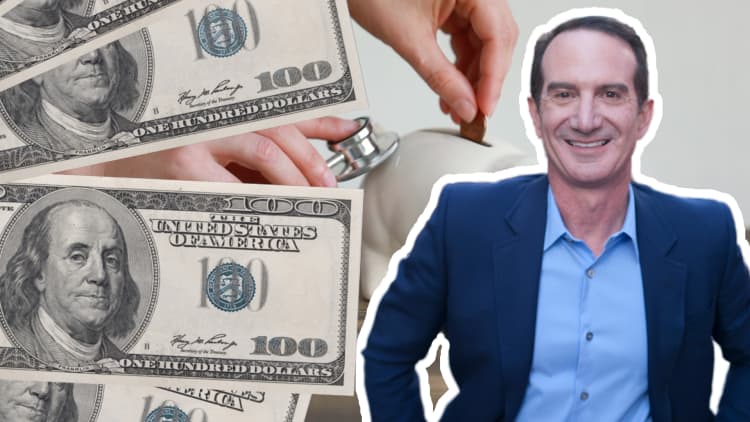In his annual letter to shareholders, which was released Thursday, J.P. Morgan Chase CEO Jamie Dimon noted that the American Dream is alive — but "fraying for many."
"Forty percent of American workers earn less than $15 an hour, and about 5% of full-time American workers earn the minimum wage or less, which is certainly not a living wage," Dimon wrote. "In addition, 40% of Americans don't have $400 to deal with unexpected expenses, such as medical bills or car repairs."
It's often reported that many Americans do not have enough savings to cover even minor financial emergencies, but, as Dimon writes in his letter, it's not the sole fault of individuals that savings lag. Soaring health care and college costs and wage stagnation are problems that the average person cannot do much to fix on their own.
Millennials especially are in a daunting situation: They carry more debt than other generations, face rising home costs and are largely responsible for funding their own retirements, all while real wages have barely budged.
"No one can claim that the promise of equal opportunity is being offered to all Americans through our education systems, nor are those who have run afoul of our justice system getting the second chance that many of them deserve," Dimon wrote. "Simply put, the social needs of far too many of our citizens are not being met."
Dimon wrote that the federal government has lost the trust of the American people and needs to step up: "Governments must be better and more effective — we cannot succeed without their help." Still, he noted, "the rest of us could do a better job, too." Here are some straightforward ways to do just that.
How to save when money is tight
While most money experts suggest stashing away three to six months' worth of living expenses, you can start by trying to save, say, $500. From there, you can level up.
Even small actions can have a big impact. Automate weekly or monthly transfers to a high-yield savings account, for starters. These accounts, offered by institutions like Ally or Goldman Sachs, currently offer annual percentage yields (APY) above 2%. That's compared to the average of just 0.1% across all savings accounts, according to the Federal Deposit Insurance Corp.
In 2018, high-yield savings accounts even outperformed the stock market.
Simply put, the social needs of far too many of our citizens are not being met.Jamie DimonCEO of J.P. Morgan Chase
"Automating the process allows you to make the decision once and prioritize," Rich Ramassini, a certified financial planner and director of strategy and sales performance at PNC Investments, told CNBC Make It. "It is harder to stick with the habit if you do it manually and force yourself to make the decision each month. A disciplined system typically yields better results than discipline alone."
You can set up a regular, pre-arranged transfer from your checking account to your savings account, or use an app like Digit or Qapital.
Once you hit your first smaller goal, that $500, research indicates you will be more encouraged to keep going. For example, a 2012 study published by the University of Chicago Press found that focusing on a small number, such as how much you have saved, rather than a large number, such as how much you want to save in total, can increase your ability to stick with the process.
Another key to saving: Go over your credit card statements and see what expenses are not necessary or don't make you happy. If you cut back on a few subscriptions, meals out or other superfluous expenditures for a while, you can create a cushion for yourself.
If you'd like tips on how to find the cash to put aside, here are a few ways to get started:
- 5 ways to save more money in 2018
- 6 money-saving tips that will make you feel smart
- 5 tips to save more money, from ordinary people who have paid off thousands
Like this story? Subscribe to CNBC Make It on YouTube!
Don't miss: The government shutdown spotlights a bigger issue: 78% of US workers live paycheck to paycheck



